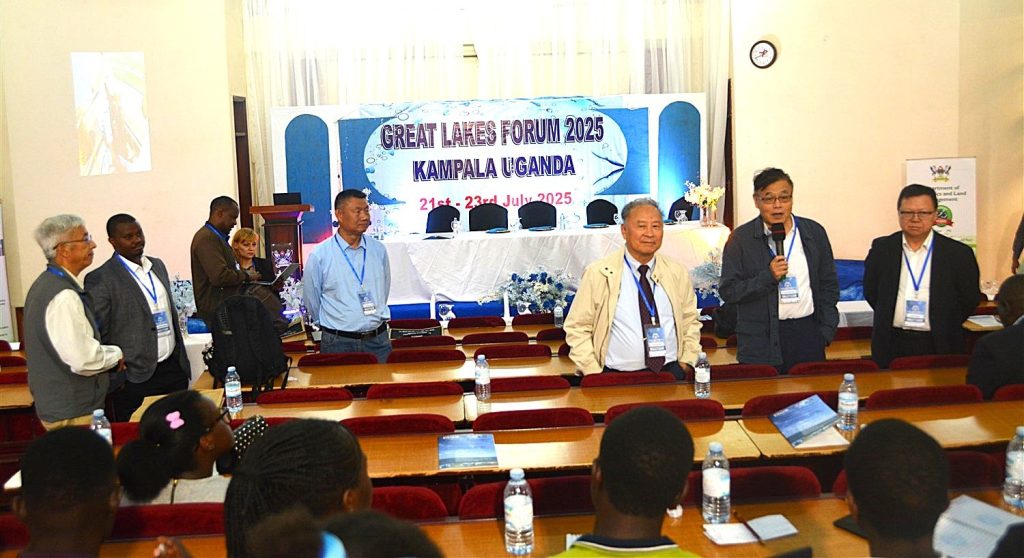Makerere University hosts the 2025 International Conference on the Cooperation and Integration of Industry, Education, Research and Application, alongside the 2025 International Conference on Great Lakes Research that ran from 21st to 23rd July, 2025.
Makerere University’s College of Engineering, Design, Art and Technology (CEDAT) Principal, Professor Moses Musinguzi, highlighted the significance of research on the Great Lakes, with a particular focus on Lake Victoria, at the Great Lakes Forum 2025. The forum aims to discuss research on the ecological and socio-economic value of the Great Lakes, with Lake Victoria being a regional priority.
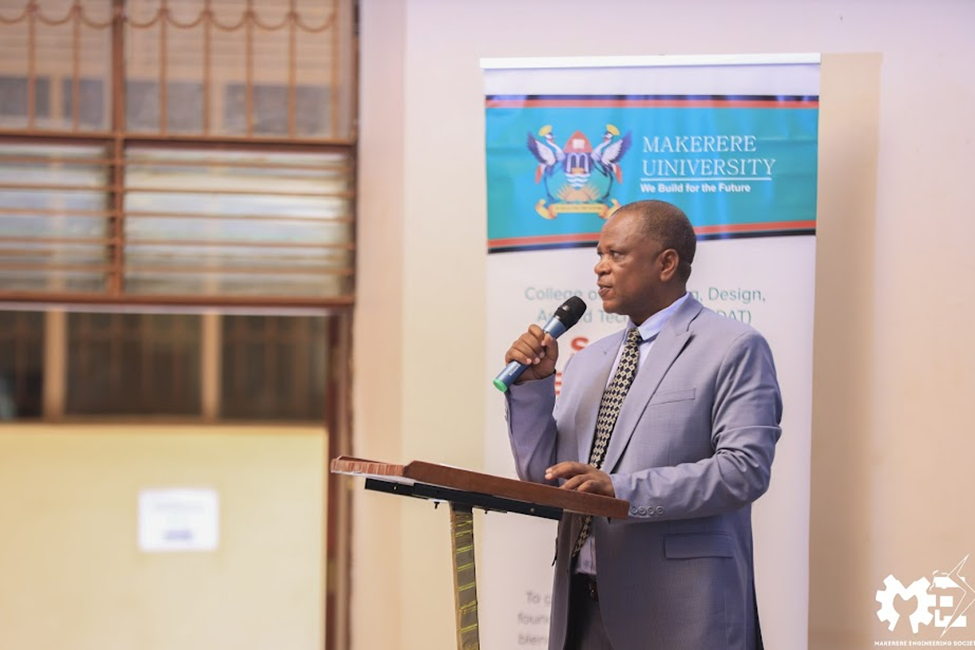
Prof. Moses Musinguzi noted that the lake is of utmost importance to the East African countries, including Kenya, Uganda, Tanzania, Rwanda, and Burundi. However, due to climate change and human activities, the lake is facing environmental threats, such as sedimentation and declining water quality.
Additionally, the surrounding catchment’s vegetation is reducing, further exposing the lake.The professor emphasized the role of scientific research in providing data to decision-makers for the lake’s protection.
He believes that by partnering with larger international universities and forming a network, high-quality laboratories and scientists can generate enough data to address the challenges facing the Great Lakes, particularly Lake Victoria.
He noted that the Forum serves as a platform for researchers and stakeholders to discuss and address the ecological and socio-economic issues affecting the Great Lakes, particularly Lake Victoria, with a focus on climate change and human activities’ impact.
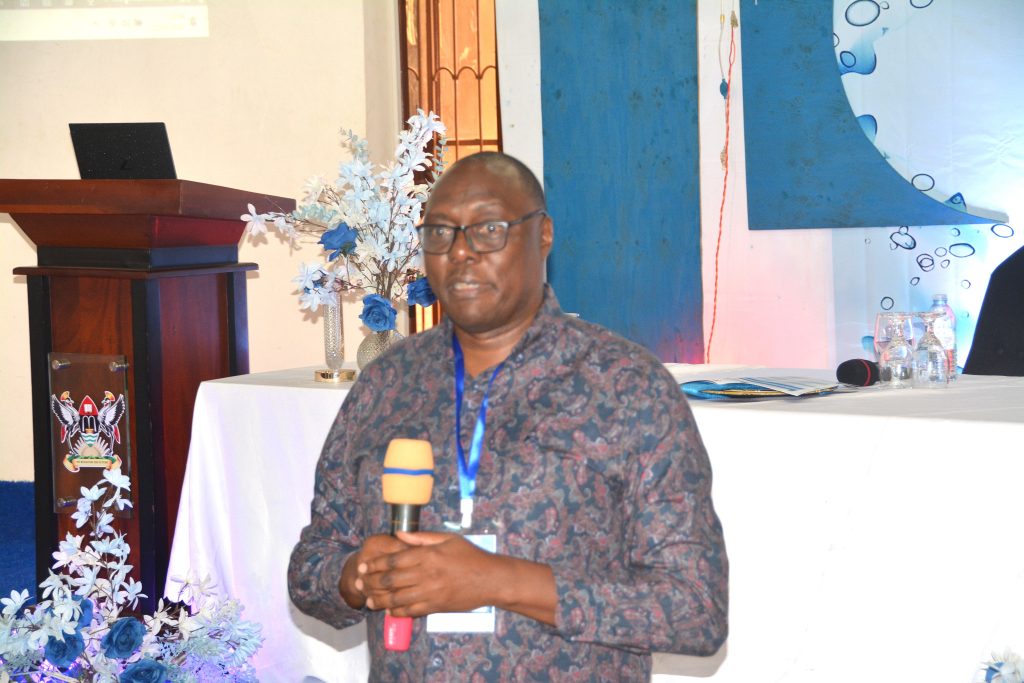
On his part, Associate Professor Anthony Gidudu from Makerere University pointed out the significance of the International Conference on the Great Lakes Researcher, which brings together scientists from diverse backgrounds to share their work on lake health, management issues, and water quality.
The conference, now in its third iteration, has previously been held in China and Kazakhstan, and this year’s event focuses on Lake Victoria.
Prof. Anthiny Gidudu’s research team is working on a project to use remote sensing technology to detect and monitor plastic pollution in freshwater environments, specifically in Lake Victoria.
The team is exploring how plastic litter interacts with light in freshwater environments, leveraging the capabilities of satellite images to identify and detect plastic pollution. They are conducting in-situ measurements of the spectral properties of common plastics found in the environment, examining the influence of different background surfaces on plastic detection.
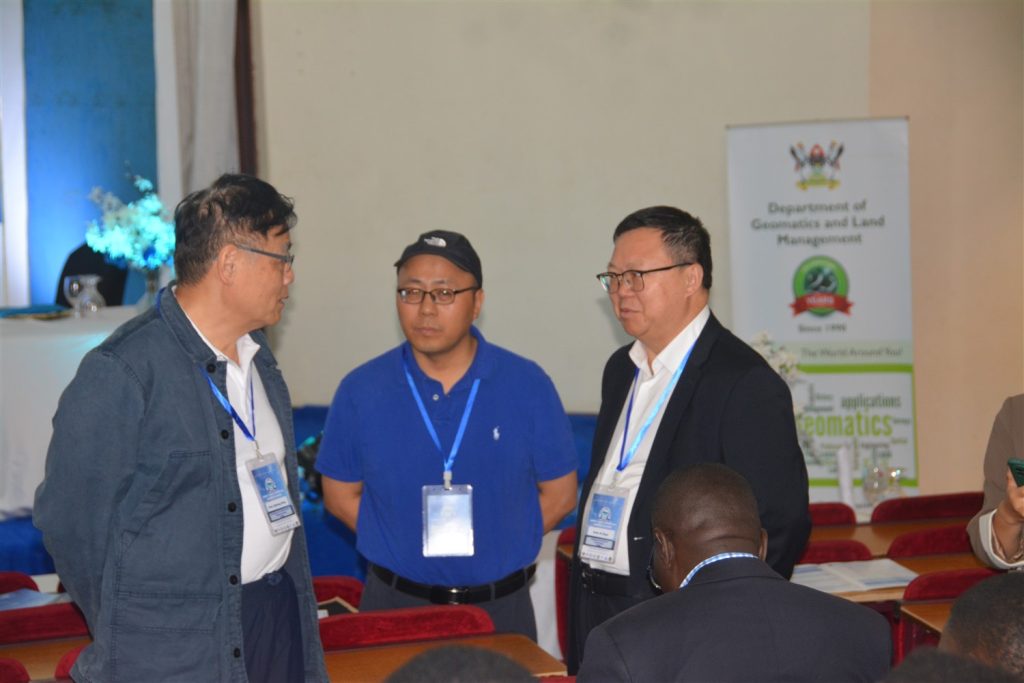
This research aims to develop and refine remote sensing algorithms to detect and monitor plastic pollution in Lake Victoria and other freshwater environments.Prof. Gidudu emphasized the importance of addressing plastic pollution in Lake Victoria, citing the lake’s significance to the local community and the growing problem of plastic waste.
He noted that the lake’s pollution is becoming endemic, particularly along fishing villages and beaches, and that microplastics have been found in Nile perch fish. The research team hopes to establish a spectral reference library to support the identification and analysis of plastic litter in inland water bodies and freshwater environments.
This ongoing work has the potential to contribute significantly to the management of plastic pollution in Lake Victoria and beyond.
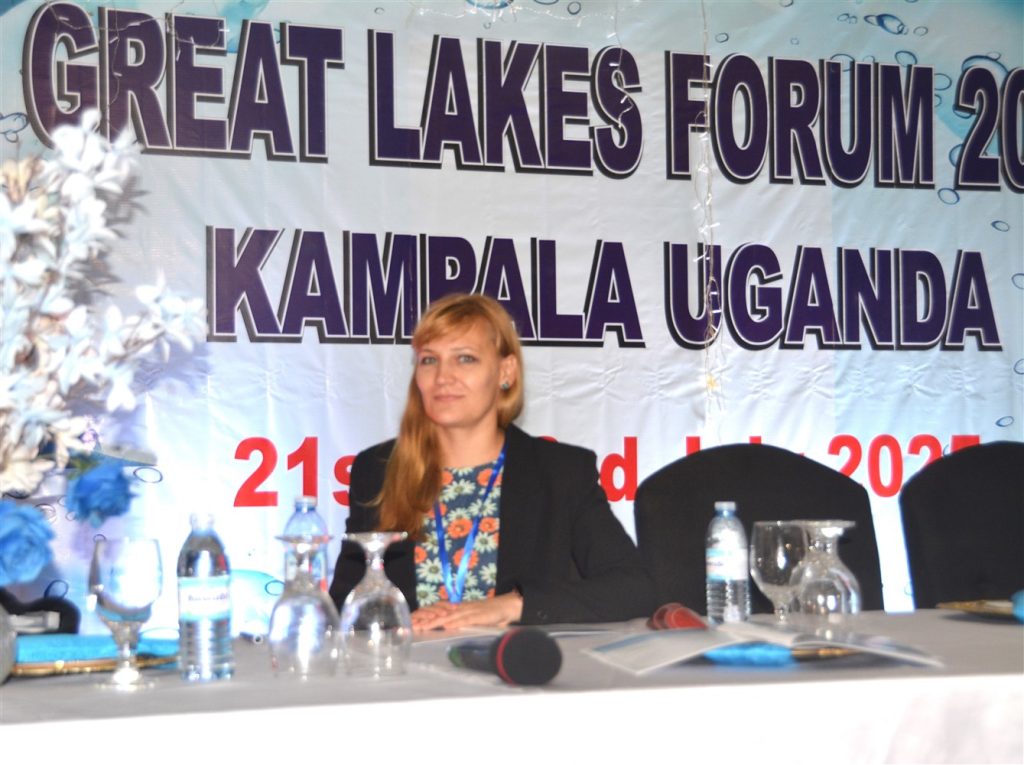
In her Keynote address, Dr. Anastazia Miadzeletes highlighted the unique features and environmental challenges of Lake Baikal, located in southern Siberia, Russia. The lake, which holds approximately 20% of the world’s unfrozen freshwater, is home to over 2,600 species, many found nowhere else, including the Baikal seal and the omul fish.
Lake Baikal’s ecosystem faces significant threats from pollution, climate change, and human activities, emphasizing the need for sustainable development and responsible resource management. To address these challenges, Russia has established protected areas, including nature reserves and national parks, and implemented special ecological zoning regulations.
She noted that international cooperation and community engagement are crucial for the lake’s long-term protection, and research initiatives, such as those conducted by the V.B. Sochava Institute of Geography SB RAS, focus on understanding the lake’s geosystems and promoting sustainable practices.
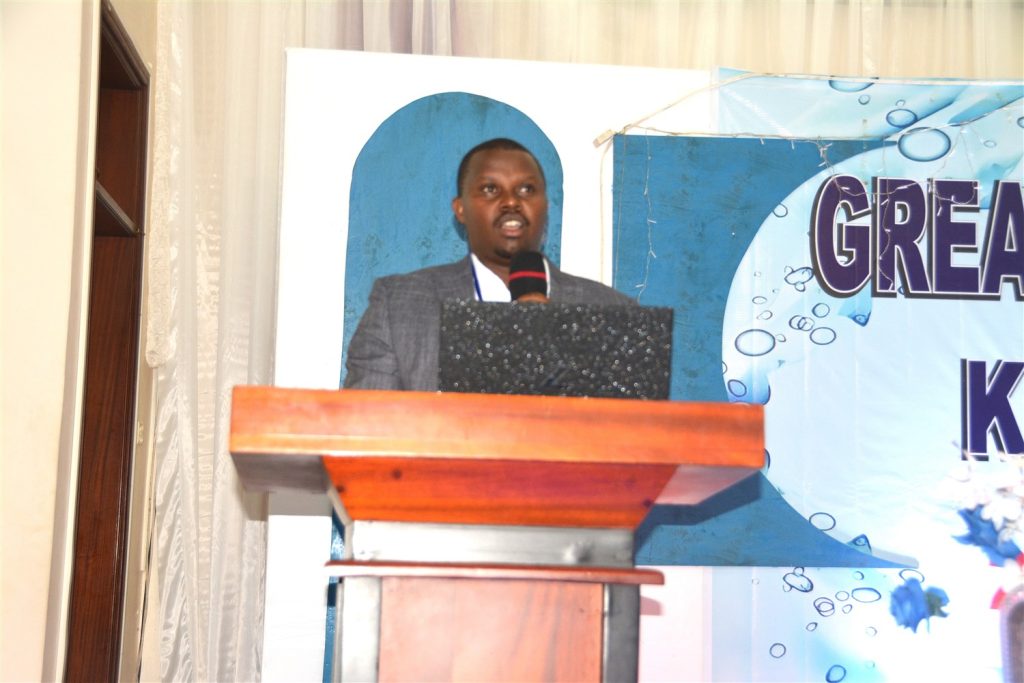
For Dr. Alphonse Kayiranga from the Xinjiang Institute of Ecology and Geography, Chinese Academy of Science, presented research on the Aral Sea lake shrinkage and its impacts on regional socio-economic development.
The Aral Sea, located in Central Asia, has faced significant challenges due to water diversion for irrigation, resulting in a dramatic shrinkage of the lake. The region’s arid climate and limited natural water production, combined with high water consumption, have exacerbated the issue.
Dr. Kayiranga’s research brought out the significant impact of water diversion on the lake’s water level and surface area. The construction of over 80 water reservoirs in Central Asia has led to a substantial reduction in the lake’s water inflow, causing severe environmental and economic consequences.
The research also showed that agricultural water use is a significant contributor to the problem, with crops such as cotton, wheat, and rice facing water shortages.The study emphasized the need for sustainable water management practices and ecological restoration to mitigate the effects of lake shrinkage.
Dr. Kayiranga suggested that analyzing the physical and chemical characteristics of the lake and its surroundings is crucial for developing effective restoration measures. He also highlighted the importance of international cooperation and stakeholder engagement in addressing the challenges facing the Aral Sea.
The research has implications for other lake systems, including the Great Lakes in East Africa, which face similar challenges related to water management and environmental degradation.
Dr. Kayiranga’s presentation provided valuable insights into the complexities of lake management and the need for collaborative efforts to address the environmental and socio-economic impacts of lake shrinkage.
In simple terms, the conference highlighted the need for collaborative efforts to protect Lake Victoria and other Great Lakes. Experts emphasized the impact of climate change, human activities, and pollution on lake ecosystems as researchers presented innovative solutions, including remote sensing technology and sustainable water management practices, with findings and recommendations meant to inform policy and practice, promoting sustainable development and environmental protection.
